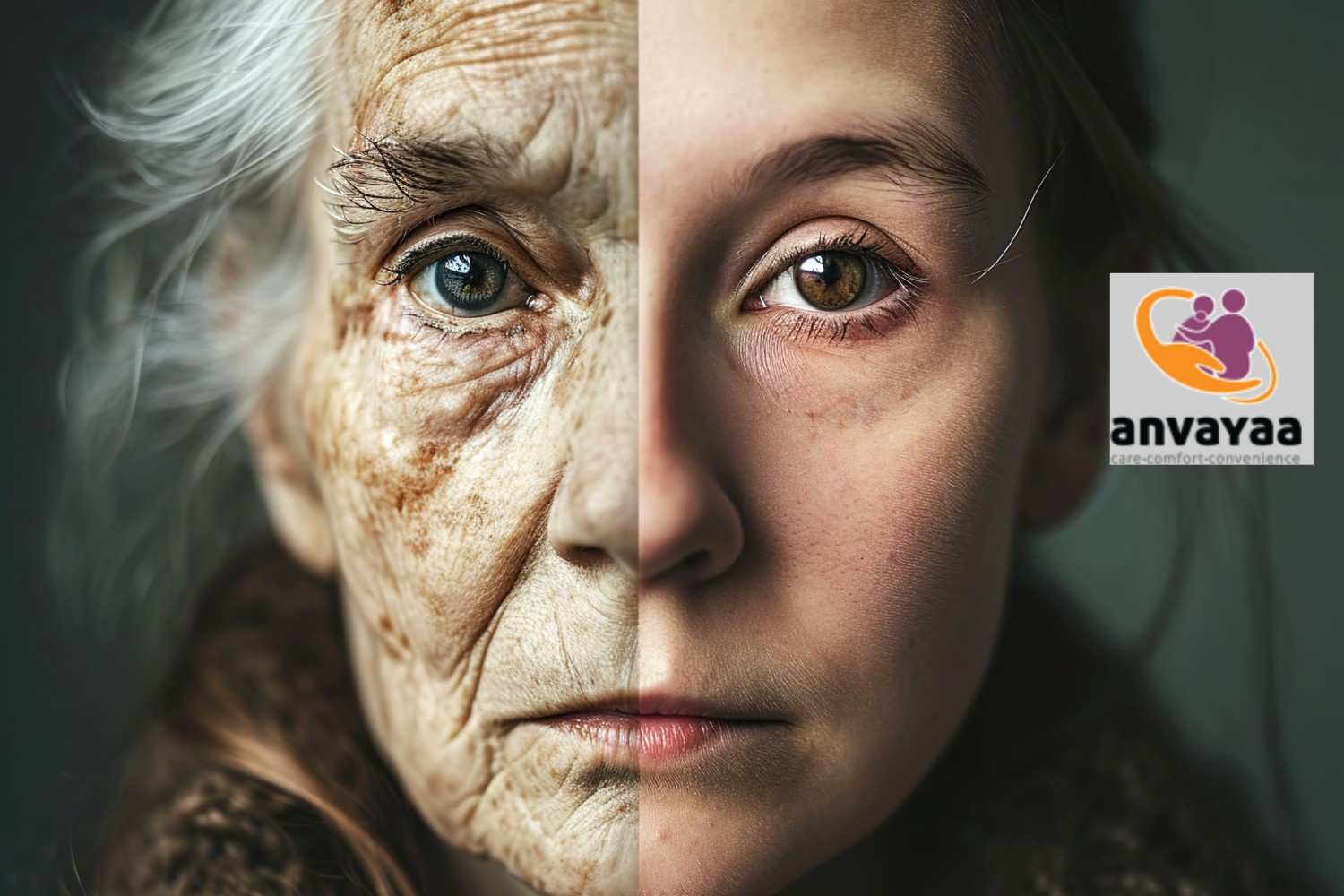Introduction :
As we journey through life, each year brings a new growth, learning, and transformation phase. The ageing process is not merely a linear progression but a multi-dimensional journey marked by distinct stages, each characterized by unique challenges, experiences, and joys. This blog delves into the various phases of becoming older, exploring the intricate tapestry of physical, emotional, and social changes accompanying ageing. From the exuberance of youth to the wisdom of old age, we’ll navigate through the complexities of ageing with curiosity, empathy, and a touch of humor.
Phase 1:

Youthful Exploration and Discovery In the early stages of life, youth is a thrilling adventure characterized by a sense of boundless energy, curiosity, and exploration. Young adults embark on a journey of self-discovery, eager to carve out their path in the world. From pursuing higher education and career aspirations to forming meaningful relationships and hobbies, this phase is a time of excitement and possibility. However, it’s also a time of vulnerability and uncertainty as individuals transition from adolescence to adulthood, grappling with questions of identity, purpose, and belonging.
Phase 2:
Productive Adulthood and Family Life As individuals enter their adult years, they often focus on building careers, establishing families, and contributing to society. This phase is a time of great accomplishment, responsibility, and fulfillment as individuals juggle multiple roles and responsibilities. From raising children and nurturing relationships to advancing in their careers and pursuing personal passions, adults in this phase often find deep satisfaction in their accomplishments and contributions to their communities. However, it’s also a time of significant stress and pressure as individuals balance competing demands and strive to find balance and fulfillment amidst the complexities of modern life.
Phase 3:
Midlife Reflection and Transition As individuals reach their middle years, they often experience a period of reflection and introspection. This phase is characterized by a reassessment of priorities, values, and goals as individuals confront the realities of ageing and mortality. Midlife adults may grapple with existential questions, such as the meaning of life, the pursuit of happiness, and the legacy they wish to leave behind. It’s a time of transition and transformation as individuals navigate the challenges of ageing, such as changes in health, career transitions, and shifts in family dynamics. Yet, it’s also a period of opportunity for growth, self-discovery, and reimagining one’s purpose and identity.

Phase 4:
Wisdom and Legacy Building As individuals enter their later years; they often embrace the role of elderhood with grace and understanding. This phase is characterised by a deep sense of reflection, acceptance, and gratitude as individuals embrace the richness of life’s experiences and the wisdom gained over the years. Elderly adults may find fulfilment in mentoring younger generations, sharing their knowledge and insights, and leaving a lasting legacy for future generations. It’s a time of profound spiritual and existential growth as individuals come to terms with the finite nature of life and find peace and contentment in the present moment.
Phase 5:

Retirement and Leisure Retirement marks a significant transition in the lives of older adults, signaling the end of formal employment and the beginning of a new chapter focused on leisure, relaxation, and personal fulfilment. This phase offers the opportunity for individuals to pursue long-held passions, hobbies, and interests that may have been deferred during their working years. From travel and exploration to volunteer work and creative pursuits, retirees often find joy and fulfilment in the freedom to engage in activities that bring them happiness and satisfaction. However, retirement can also pose challenges, such as adjusting to a new routine, managing financial resources, and navigating changes in social networks and identity.
Phase 6:
Aging in Place and Long-term Care As individuals continue to age, they may face increasing health challenges and changes in mobility that impact their ability to live independently. Ageing in place, or remaining in one’s own home, is a preference for many older adults, as it allows them to maintain familiarity, independence, and a sense of autonomy. However, as care needs escalate, some individuals may require additional support and assistance with daily activities, prompting the need for long-term care options such as assisted living facilities or nursing homes. This phase requires careful planning, communication, and decision-making to ensure that older adults receive appropriate care and support while maintaining their dignity and quality of life.
Phase 7:
End-of-Life Planning and Legacy Reflection As individuals approach the later stages of life, they may engage in end-of-life planning and reflection on their legacy. This phase involves making important decisions about healthcare preferences, estate planning, and funeral arrangements to ensure one’s wishes are honored and affairs are in order. It’s also a time for individuals to reflect on their accomplishments, relationships, and contributions to the world, considering the impact they wish to leave behind for future generations. End-of-life planning allows individuals to find peace, closure, and purpose as they prepare for the inevitable transition into the next phase of existence.

Phase 8:
Spirituality and Transcendence In the final phase of life, many older adults turn to spirituality and transcendence as a source of comfort, meaning, and solace. This phase is marked by a deepening connection to one’s faith, beliefs, and spiritual practices as individuals grapple with existential questions about the nature of life, death, and the afterlife. Spirituality offers a sense of transcendence beyond the physical realm, providing hope, resilience, and a sense of interconnectedness with something greater than oneself. Whether through prayer, meditation, or participation in religious rituals, older adults find solace in believing that their lives are part of a more extensive cosmic journey guided by a higher power or universal consciousness.
Conclusion:
Becoming older is a multi-dimensional process marked by distinct phases, each offering challenges, experiences, and growth opportunities. From youth’s exuberance to old-age wisdom, each phase brings a unique perspective on life and a wealth of lessons to be learned. By embracing the complexities of ageing with curiosity, empathy, and resilience, individuals can navigate each phase with grace and authenticity, finding meaning, fulfilment, and joy in the journey of becoming older.

Be First to Comment